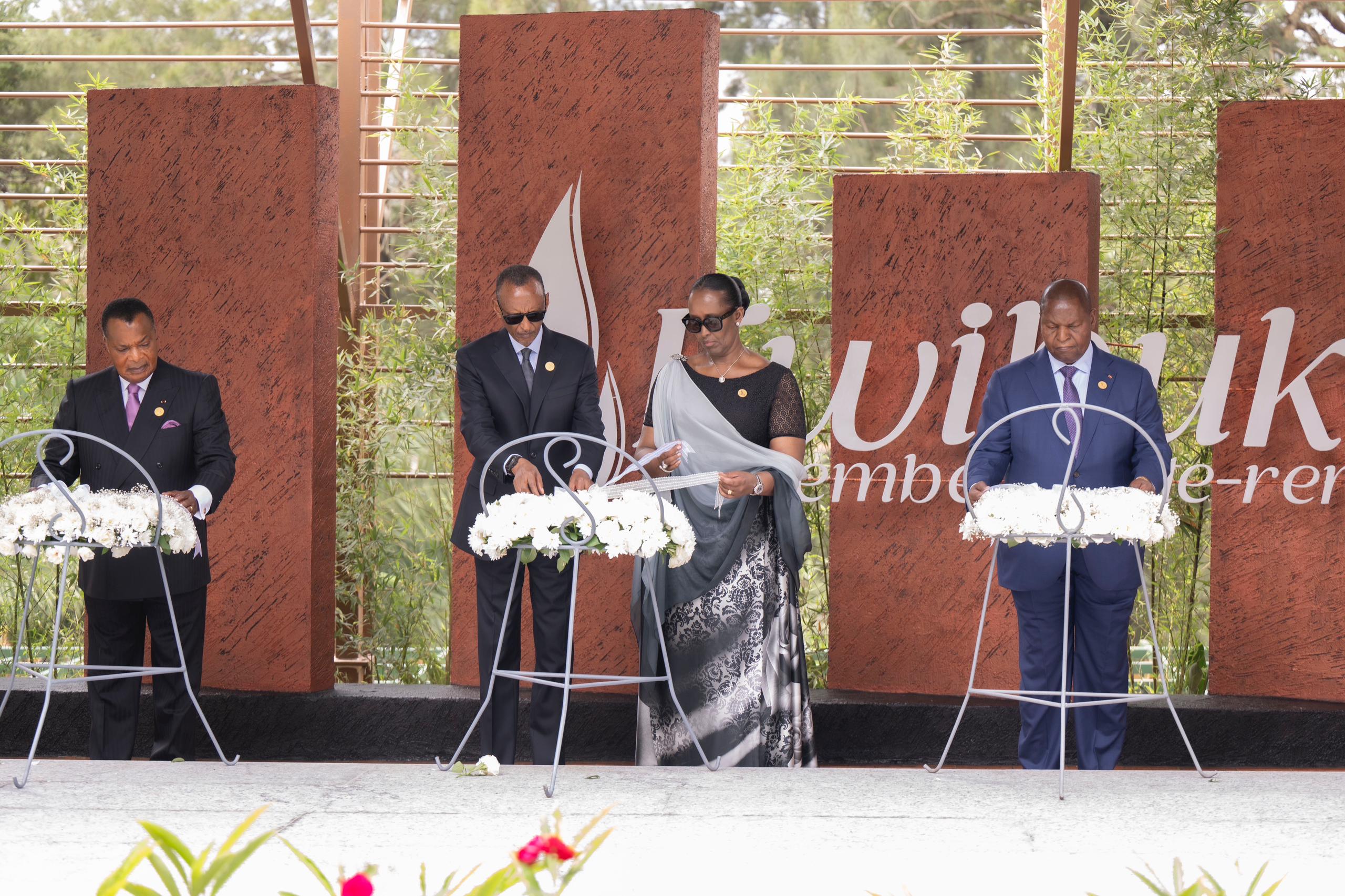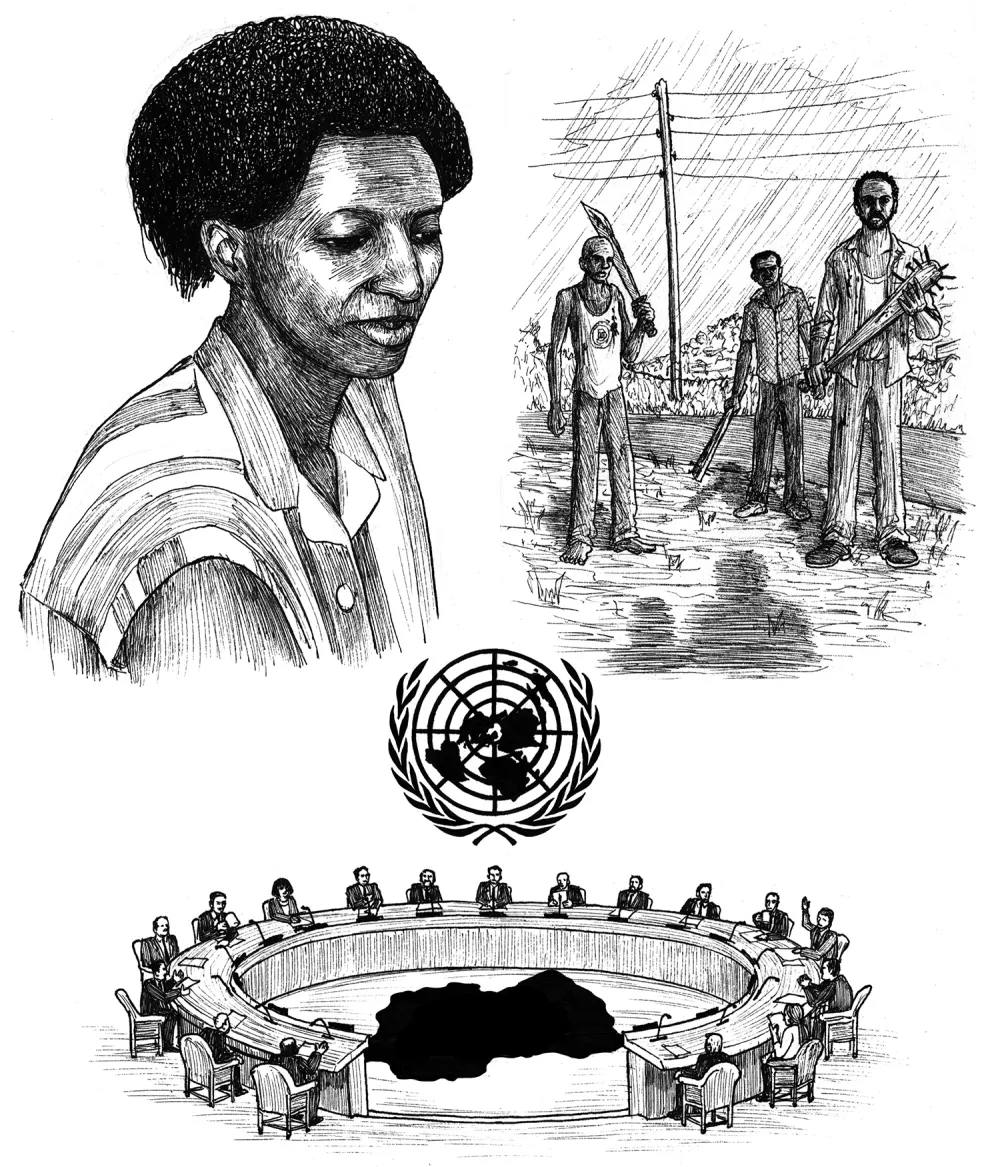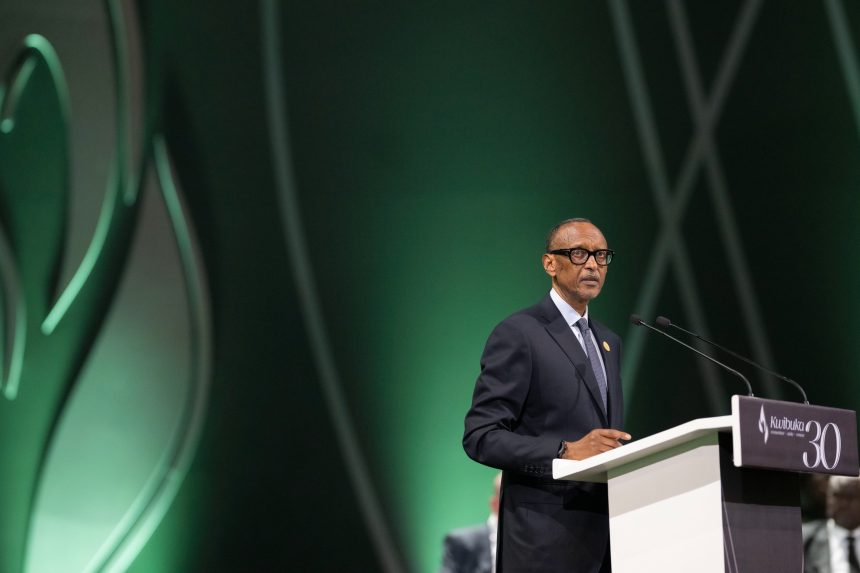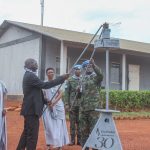In a poignant address during the Kwibuka30 commemoration, President Paul Kagame shared a deeply personal account that underscored the profound tragedy and systemic failures that marred the 1994 genocide against Tutsi.
Recalling the harrowing ordeal faced by his cousin, Florence Ngirumpatse, and other innocent victims, President Kagame recounted the heart-wrenching conversations he had with her as she found herself trapped amidst the chaos and carnage.
“My cousin, in fact a sister, Florence, worked for the United Nations Development Program in Rwanda for more than fifteen years. After the genocide started, she was trapped in her house near the Camp Kigali army barracks, with her niece, and other children and neighbors, around a dozen people in total,” President Kagame revealed.
Despite the dire circumstances, Florence maintained contact with President Kagame, who recounted calling her several times using his satellite phone.
“Each time we spoke, she was more desperate. But our forces could not reach the area,” he lamented.
In a desperate bid to secure assistance for Florence and the others, President Kagame reached out to UN forces, including General Dallaire, the commander of the U.N. peacekeeping mission.
“When General Dallaire visited me where I was in Mulindi, I asked him to rescue Florence. He said he would try,” President Kagame recalled. However, the last conversation with Florence left him shattered.
“She said no, and started crying. Then she said, ‘Paul, you should stop trying to save us. We don’t want to live anymore anyway.’ And she hung up,” he shared.
Tragically, on the morning of May 16th, following a month of torture, Florence and the others were all killed, except for one niece who managed to escape, thanks to a good neighbour.
President Kagame’s anguish deepened upon learning that a Rwandan working at the UNDP had betrayed his Tutsi colleagues to the killers.
“Witnesses remember him celebrating Florence’s murder the night after the attack,” President Kagame revealed, highlighting the profound betrayal.
That betrayer was Callixte Mbarushimana, a Hutu genocide fugitive in France who was assigned to help keep United Nations workers alive during the genocide.
Instead, he directed and took part in the killing of 32 people, including United Nations colleagues, and personally shot two people.
Mbarushimana, then a computer technician with the U.N. Development Program (UNDP) in Rwanda, declared himself the agency’s officer-in-chief, seizing control of UNDP’s assets, including Motorola radio handsets, and more than 25 U.N. vehicles, making them available to the Rwandan military.
He pointed the military to the homes of several U.N. employees, including Florence’s, who were later killed, according to an indictment prepared by a prosecutor for the International Criminal Tribunal for Rwanda (ICTR).
Despite the evidence against him, Mbarushimana continued to work for the United Nations in Angola and Kosovo, evading prosecution for his crimes.
“Meanwhile, he conveyed to me an order from the United States ambassador to protect diplomats and foreign civilians evacuating by road to Burundi from attack by the militias. These two things happened at the same time. I did not need to be instructed to do something that goes without saying. That’s what I was going to do,” President Kagame asserted, eluding to the possibilities of having arrested and shot Mbarushimana among the escaping diplomats.
While acknowledging the challenges faced by General Dallaire and praising his efforts, President Kagame noted the stark contrast in the value attached to different shades of life.
“I do not blame General Dallaire. He is a good man who did the best that could be done in the worst conditions imaginable, and who has consistently borne witness to the truth, despite the personal cost,” President Kagame emphasized. 
The failure to prosecute Mbarushimana and the decision to compensate him for lost pay incensed many, calling into question the United Nations’ commitment to confront serious wrongdoing within its ranks.

Despite evidence implicating him, Mbarushimana has remained a free man, now living in France.
President Kagame’s painful remarks serve as a solemn reminder of the imperative to confront the painful truths of history and uphold the dignity of those who perished in the genocide against the Tutsi.
The French investigation into Mbarushimana was triggered by a 2008 complaint by a group of survivors known as the Collective of Civil Parties for Rwanda, or CPCR, which first initiated legal efforts to prosecute alleged Rwandan mass murderers living in France back in 2001.
The case has been gradually unraveling as eyewitnesses who testified against Mbarushimana before investigators with the ICTR more than 18 years ago have “retracted their testimonies, been killed or disappeared,” Charles Petrie wrote to Guterres in 2019.
Charles Petrie, a retired senior official at the United Nations, has devoted a fair chunk of the past quarter century of his life to a single crusade: securing the prosecution of Mbarushimana.
Petrie contacted a key witness who testified to international investigators, but she feared testifying at trial.
“She knows that Callixte Mbarushimana remains a key member of the FDLR, and fears for the safety of her children,” Petrie wrote.
The FDLR is the French acronym for a rebel Hutu militia called the Democratic Forces for the Liberation of Rwanda.
“The French judicial process is coming to an end, from what I know—there is probably insufficient cause to take the case to trial,” Petrie told Foreign Policy by email. “I am asking the new secretary general [to] instruct the U.N.”
Meanwhile, Florence’s name is engraved on a wall at the genocide memorial as one of the victims of this horrendous tragedy, whose memory is present and preserved for generations to remember.









